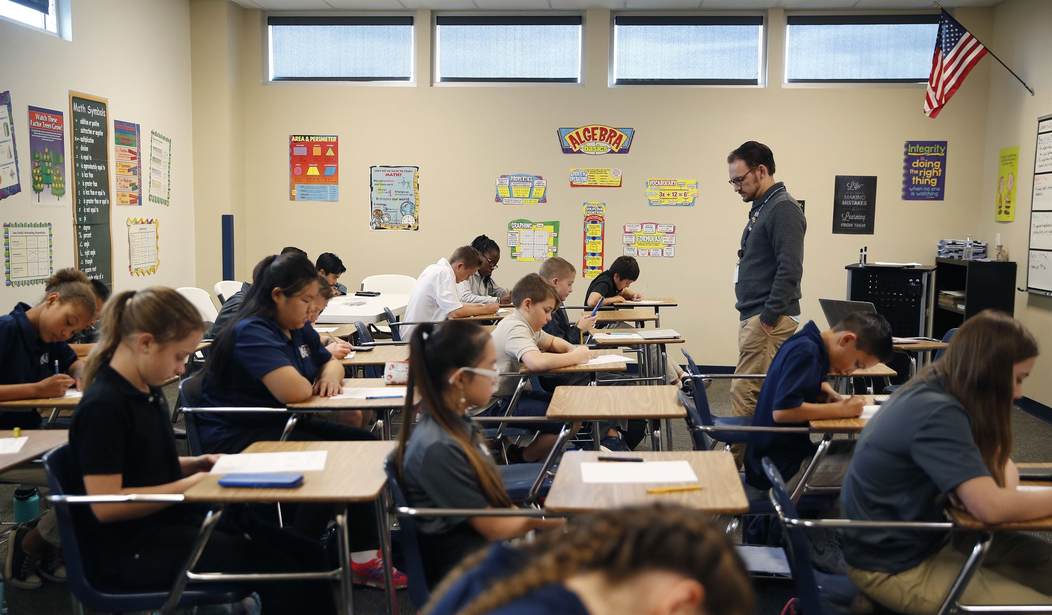Chris Talgo ([email protected]) is a former public high school teacher and editorial director at The Heartland Institute.
Incredible as it may seem, less than one year ago, not a single state offered universal school choice to its citizens. That was then, this is now. Today, four states (Arizona, Arkansas, Iowa, and Utah) have universal school choice laws on the books, with several more considering bills that would vastly expand education freedom.
Although there are many factors that have led to the school choice movement gaining more momentum than ever before, one should not discount the behavior of public school leaders and teacher union officials during the pandemic in moving public opinion decidedly in favor of school choice.
According to recent polling, school choice is more popular than ever before. And, more significantly, school choice is one of the rare issues that receives widespread support from Democrats, Republicans, and Independents as well as across racial, socioeconomic, and even generational lines.
This month marks the three-year anniversary of the widespread shutdown of public schools throughout the country, under the guise of the pandemic. Of course, as most Americans witnessed with bewilderment, while most public schools refused to offer in-person learning throughout the duration of the pandemic, the overwhelming majority of private and charter schools remained open for in-person learning over the same period.
On top of this, as government-run schools refused to offer in-person learning and opted for inferior remote learning, droves of parents were absolutely shocked at the radical curriculum that the public schools were pushing on their children. From critical race theory to explicit sexual content, parents finally got a first-hand account of what public schools are up to these days.
Moreover, as the months went by and the public schools kept moving the reopening goalposts, parents became infuriated that their children were falling behind academically as well as becoming increasingly isolated, depressed, and dysfunctional after months of being stuck at home in front of a screen for eight hours per day.
Needless to say, most parents were at their wits end with the education industrial complex, which exists to serve adults, specifically teacher unions and public education bureaucrats, not students.
So, as would be expected, a major exodus from public schools began. While parents were pulling their children from failing public schools, they chose to enroll their kids in private, parochial, and charter schools. This trend was exacerbated when public schools refused to drop mask mandates and required vaccinations, even though the evidence showed that both of these policies were misguided at best and downright harmful to most children.
Yet, even as the writing was on the wall, public school officials and their partners in crime ignored the pleas by parents to address, or at least consider, their valid concerns. In fact, for the most part, these unaccountable bureaucrats doubled down on their position, berating parents for having the audacity to question their omnipotence over the education system.
In one classic example, Virginia gubernatorial candidate Terry McAuliffe said during a debate, “I don’t think parents should be telling schools what they should teach.”
Glenn Youngkin, McAuliffe’s opponent, took the inverse position, saying, “What we’ve seen over the course of this last 20 months is our school systems refusing to engage with parents. In fact, in Fairfax County this past week, we watched parents so upset because there was such sexually explicit material in the library they had never seen, it was shocking. And in fact, you vetoed the bill that would have informed parents that they were there. You believe school systems should tell children what to do. I believe parents should be in charge of their kids’ education.”
In many ways, this was a tipping point. The eyes of the nation were cast on Virginia in 2021 because it became ground zero in the battle for parental rights and school choice, in general.
Fortunately, Youngkin defeated McAuliffe in a landslide. However, this race was a microcosm for the bitter battles that were to follow. After Youngkin’s unexpected victory, more and more Republican governors began to embrace school choice. On the other hand, more and more Democratic governors began to take the opposite stance and became full-fledged enemies of the increasingly popular school choice renaissance.
And so, this is where things stand today. Among the general population, school choice is a commonsense policy that places parents, not education bureaucrats, in charge of their children’s education. As we continue to see, education choice is being embraced in red states, which are offering parents education savings accounts so that they can choose whichever school their child should attend. Yet, most blue states remain obstinate, reluctant to heed the wishes of the parents who prodigiously advocate for more school choice.
Eventually, I expect that freedom will win the day. It will likely be a long, drawn-out fight, but if the current trend continues, the left’s monopoly on education could be on the verge of extinction sooner rather than later.














Join the conversation as a VIP Member